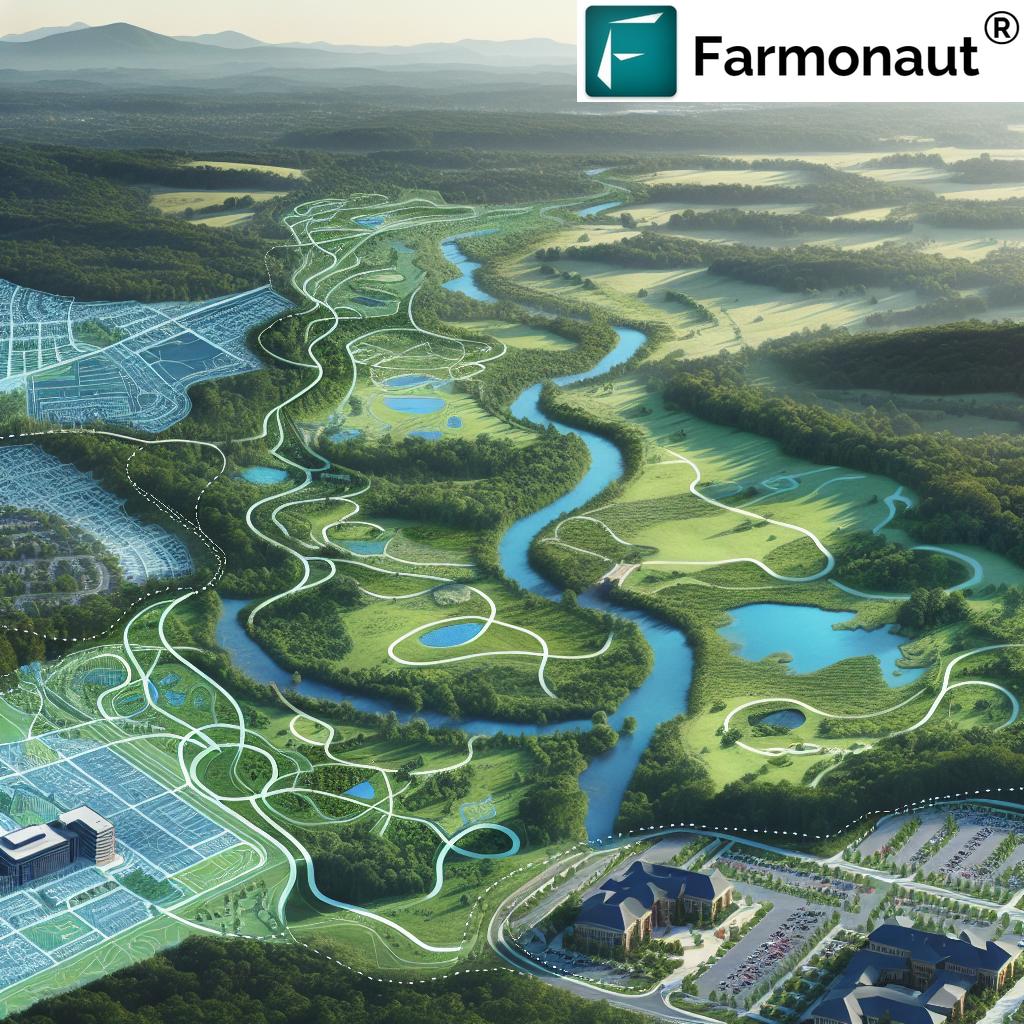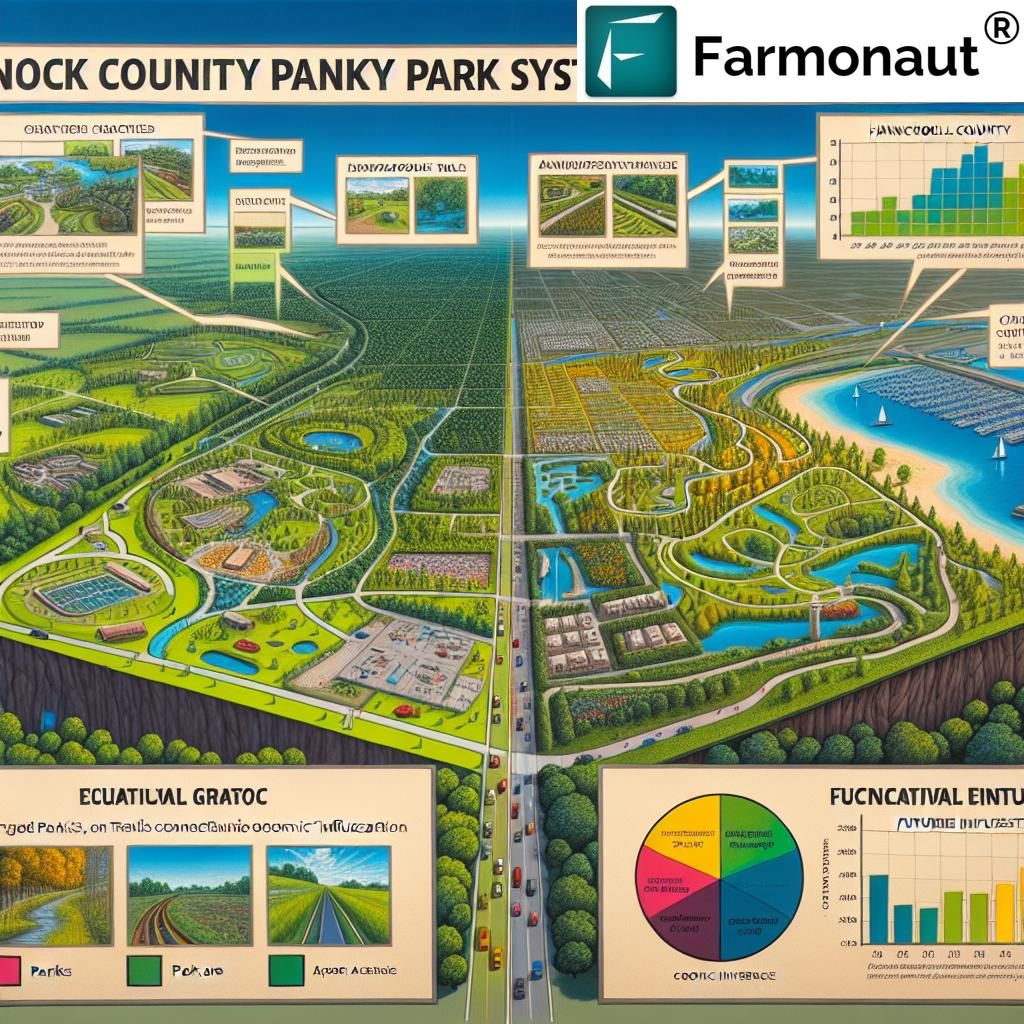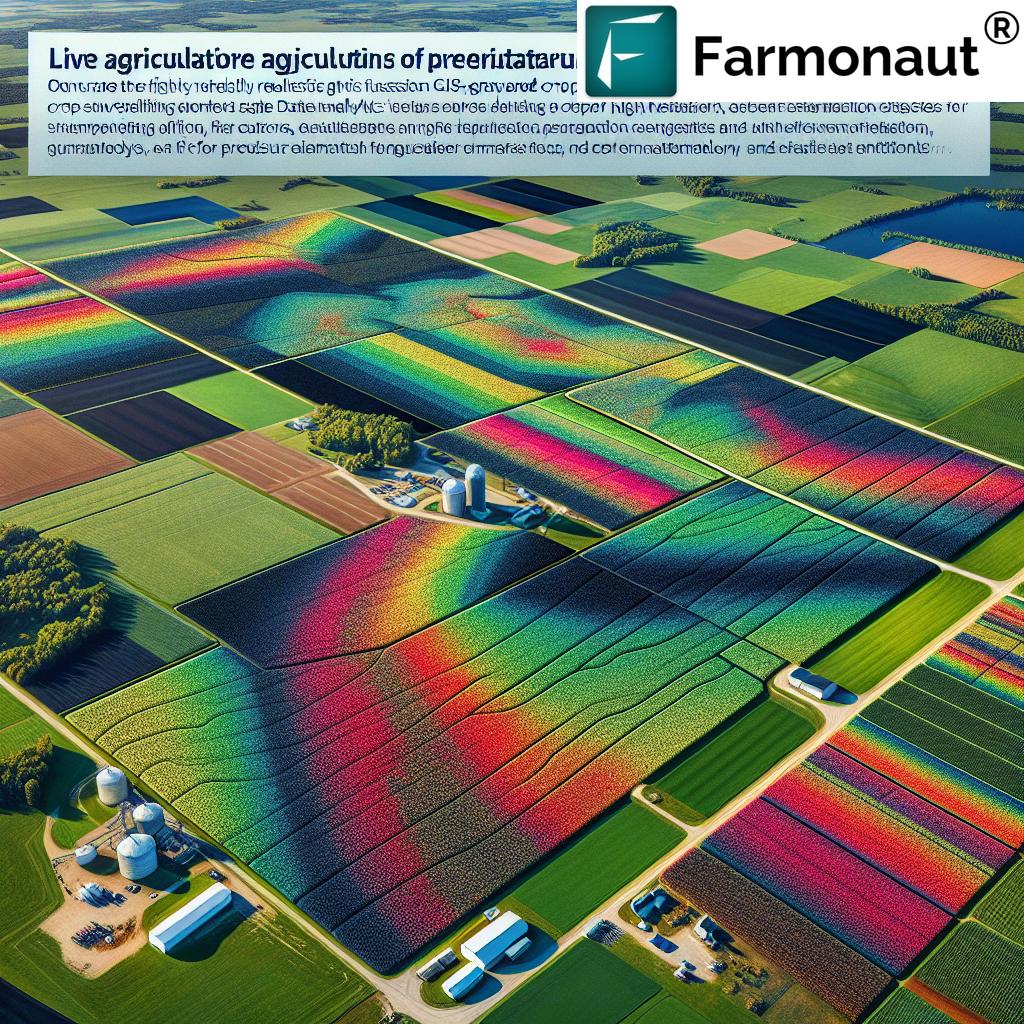Enhancing Hancock County: Innovative Master Plan for Parks and Recreation Connectivity
“Hancock County’s park system is set to expand over the next 5 years, enhancing open space preservation and trail connectivity.”
Welcome to our comprehensive exploration of Hancock County’s ambitious parks and recreation master plan. As we delve into this exciting initiative, we’ll uncover how this visionary project aims to transform the county’s landscape, fostering economic development and creating attractive living spaces for all residents.

In this blog post, we’ll take you through the intricacies of the county parks system development, highlighting the collaborative efforts between county officials, consultants, and residents. We’ll explore how this master plan addresses the community’s needs, focusing on open space preservation, trail connectivity, and the creation of quality of life amenities.
The Genesis of Hancock County’s Parks Vision
The journey towards a comprehensive county parks system began with a recognition of the growing need for enhanced recreational spaces and natural resource conservation. In 2023, county officials took a significant step by hiring Pros Consulting to conduct a county-wide needs assessment. This move set the foundation for what would become an ambitious five-year master plan for parks and recreation.
Key milestones in this process include:
- April 2024: Creation of a dedicated parks department
- Summer 2024: Appointment of board members by the county council and commissioners
- Ongoing: Public input sessions and stakeholder interviews
The involvement of experienced professionals like Travis Tranbarger and Leon Younger from Pros Consulting brings decades of expertise in parks management to the table. Their insights, combined with local knowledge, are shaping a plan that’s both ambitious and grounded in reality.
Aligning with Existing Plans and Community Needs
The master plan for Hancock County’s parks system doesn’t exist in isolation. It’s carefully aligned with other significant local initiatives:
- 2023 County Comprehensive Plan: Emphasized developing a park and open space system
- 2024 Quality of Place Plan: Highlighted the importance of enhancing parks and open spaces
These existing plans provide a solid foundation for the parks master plan, ensuring that it addresses long-term community goals and aspirations.
The needs assessment conducted by Pros Consulting revealed strong community support for:
- Acquiring land for open space
- Preserving natural resources
- Developing multi-use paved trails
- Creating indoor walking tracks
- Establishing aquatics centers
These findings are crucial in shaping the direction of the parks master plan, ensuring that it truly reflects the desires and needs of Hancock County residents.
The Power of Proper Planning
Leon Younger, with his extensive experience working with over 1,500 parks systems across the United States, emphasizes the critical role of proper planning in the success of a new parks department. This planning process involves:
- Assessing current and future needs
- Understanding county growth patterns
- Evaluating existing services and amenities
- Identifying potential service providers
By taking a comprehensive approach to planning, Hancock County is laying a solid foundation for a parks system that will serve the community for generations to come.
“The master plan for Hancock County parks focuses on developing multi-use trails and acquiring land for future recreational needs.”
Collaboration: The Key to Success
One of the most exciting aspects of this master plan is its emphasis on collaboration. The Hancock County parks department is not looking to work in isolation but rather to foster partnerships with existing parks systems in the county. This collaborative approach aims to:
- Develop county parks that complement existing amenities
- Create trails that enhance connectivity across the county
- Maximize resources and avoid duplication of services
Julie Patterson, assistant director of Greenfield Parks Department, envisions a future where “all the trails (in the county) connect one day.” This shared vision of connectivity is at the heart of the master plan.

Economic Impact and Quality of Life
The development of a comprehensive county parks system is not just about creating recreational spaces; it’s about enhancing the overall quality of life in Hancock County. Mitchell Kirk, communications director for Hancock Economic Development Council, highlights a crucial shift in economic trends:
“People used to follow jobs, but now it’s much different. Jobs are following people. People are going where they want to live. Quality of life plays a big part in where they choose to live, and parks are a huge part of quality of life.”
This insight underscores the potential economic benefits of investing in parks and recreational amenities. By creating attractive living spaces, Hancock County is positioning itself to attract new residents and businesses, fostering long-term economic growth.
A Unique Opportunity for Growth
Travis Tranbarger from Pros Consulting emphasizes the unique opportunity presented by starting a parks system from scratch. This blank canvas allows for:
- Creating a strong foundation for future growth
- Developing realistic and achievable goals
- Implementing best practices from the start
- Tailoring the system to the specific needs of Hancock County
By carefully planning and laying this foundation, Hancock County is setting itself up for long-term success in its parks and recreation initiatives.
Community Engagement and Public Input
A critical component of the master planning process has been the emphasis on community engagement and public input. The recent public input session at the Hancock County Courthouse Annex, which saw about 30 people in attendance, is a testament to this commitment. During this session:
- Community members reviewed maps and graphics of potential land acquisitions
- Attendees provided input on priority areas using color-coded stickers
- Consultants shared insights from their research and needs assessment
This level of community involvement ensures that the final master plan will truly reflect the desires and needs of Hancock County residents.
The Road Ahead: Timeline and Next Steps
As we look to the future, the timeline for the parks master plan is taking shape:
- June 2025: Targeted completion of the five-year master plan
- November 2025: Submission to Indiana Department of Natural Resources for grant eligibility
This timeline allows for thorough planning while also positioning the county to take advantage of state and federal funding opportunities.
Comparing Current and Future Parks Systems
To better understand the scope of changes proposed in the master plan, let’s take a look at a comparison between the current parks system and the future vision:
| Features | Current Status | Future Plan |
|---|---|---|
| Number of Parks | Limited | Significant increase |
| Total Park Acreage | Minimal | Substantial expansion |
| Miles of Multi-Use Trails | Few | Extensive network |
| Community Parks | Limited | Multiple new parks |
| Natural Conservation Areas | Scarce | Increased preservation |
| Connectivity to Regional Trails | Minimal | Enhanced connections |
This comparison highlights the ambitious nature of the master plan and the significant improvements it aims to bring to Hancock County’s parks and recreation landscape.
Challenges and Opportunities
While the master plan presents an exciting vision for the future, it’s important to acknowledge the challenges that lie ahead:
- Funding: Securing adequate funding for land acquisition and development
- Land Acquisition: Identifying and acquiring suitable parcels for parks and trails
- Maintenance: Ensuring long-term sustainability of new parks and facilities
- Balancing Needs: Meeting diverse community needs within budget constraints
However, these challenges also present opportunities for innovation, community engagement, and partnerships that can strengthen the county’s parks system for years to come.
The Role of Technology in Parks Management
As we look to the future of parks management in Hancock County, it’s worth considering how technology can play a role in enhancing the visitor experience and improving operational efficiency. While not directly related to parks management, innovative agricultural technologies like those offered by Farmonaut demonstrate the potential for tech integration in land management.
For instance, satellite-based monitoring systems could be adapted for parks to:
- Track vegetation health in natural areas
- Monitor trail conditions
- Assist in resource allocation for maintenance
While Farmonaut’s specific agricultural solutions may not apply directly to parks management, their approach to leveraging technology for land monitoring and management could inspire similar innovations in the parks sector.
Explore advanced satellite-based solutions: Farmonaut Web App
For those interested in seeing how satellite technology can be applied to land management, Farmonaut offers a range of tools:
Community Involvement and Volunteer Opportunities
As the parks system in Hancock County grows, there will be increased opportunities for community involvement. Volunteer programs could be established to:
- Assist with trail maintenance
- Participate in conservation efforts
- Organize community events in parks
- Contribute to educational programs about local flora and fauna
These volunteer opportunities not only help in maintaining the parks but also foster a sense of community ownership and pride in the new parks system.
Environmental Education and Conservation
The expansion of parks and natural areas in Hancock County presents an excellent opportunity for environmental education and conservation efforts. Future programs could include:
- Nature centers with interactive exhibits
- Guided nature walks and wildlife observation opportunities
- Workshops on local ecosystems and conservation practices
- School partnerships for outdoor education programs
These initiatives would not only enhance the educational value of the parks but also promote environmental stewardship among county residents.
Economic Impact and Tourism Potential
The development of a comprehensive parks system has the potential to boost local tourism and contribute to economic growth. Some potential benefits include:
- Increased visitor spending in local businesses
- Job creation in parks management and maintenance
- Attraction of outdoor recreation-related businesses
- Enhanced property values near parks and trails
By investing in parks and recreation, Hancock County is not just improving quality of life for residents but also creating opportunities for economic development.
Conclusion: A Vision for a Greener, More Connected Hancock County
As we’ve explored throughout this blog post, the parks and recreation master plan for Hancock County represents a bold vision for the future. By focusing on open space preservation, trail connectivity, and the creation of quality of life amenities, this plan aims to transform the county’s landscape and enhance the lives of its residents.
The collaborative approach, involving county officials, consultants, and community members, ensures that this plan truly reflects the needs and aspirations of Hancock County. As the plan moves forward, it will be exciting to see how these ideas take shape, creating a network of parks and trails that will serve the community for generations to come.
We encourage all residents to stay engaged with this process, participate in future public input sessions, and contribute to shaping the future of Hancock County’s parks system. Together, we can create a greener, more connected, and more vibrant community for all to enjoy.
FAQs
- When will the parks master plan be completed?
The five-year master plan is targeted for completion by June 2025. - How can residents provide input on the parks plan?
Residents can attend public input sessions, participate in surveys, and contact the parks department directly with suggestions. - What types of new parks are being considered?
The plan considers a range of park types, including community parks, natural conservation areas, and multi-use trail systems. - How will the new parks system be funded?
Funding will likely come from a combination of county budget allocations, grants, and potentially public-private partnerships. - Will the new parks system connect with existing city parks?
Yes, a key goal of the master plan is to enhance connectivity between county and city park systems.
Earn With Farmonaut: Affiliate Program
Earn 20% recurring commission with Farmonaut’s affiliate program by sharing your promo code and helping farmers save 10%. Onboard 10 Elite farmers monthly to earn a minimum of $148,000 annually—start now and grow your income!















